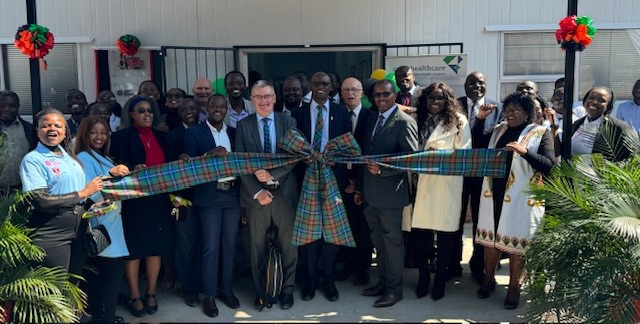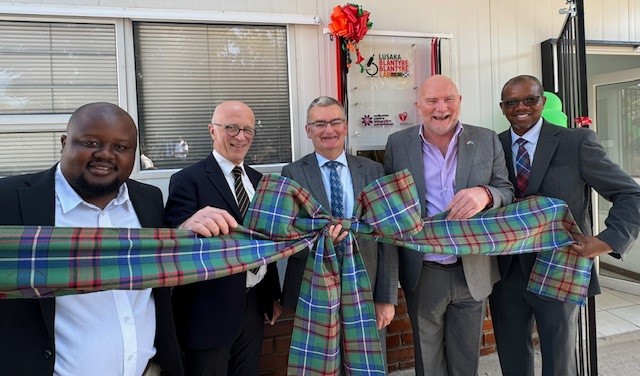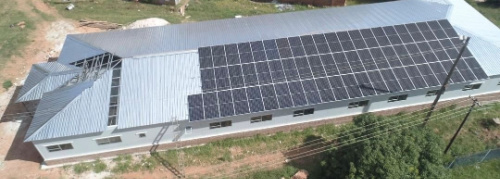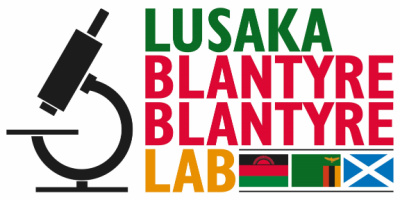Global partners open new research facility
A new state-of-the-art research facility fully powered by clean energy was recently launched as part of a global partnership between the University of Glasgow, University of Zambia and Kamuzu University of Health Sciences.
The new facility represents a step change in global research partnerships with a commitment to tackle issues around healthcare, medicine and inequalities.
A shared commitment

Representatives from the Zambia government (Ministry of Technology & Science) as well as the UK/Zambia High Commissioner recently attended the official opening of the new Lusaka-Blantyre-Blantyre Research facility. Based within the University of Zambia Ridgeway campus in Lusaka, the laboratory, funded by Scottish Government International Development is a collaboration between the University of Glasgow, the University of Zambia and Kamuzu University of Health Sciences in Malawi.
"The opening of the Lusaka-Blantyre-Blantyre Laboratory marks the beginning of the exciting, next phase of the equitable partnership between the University of Zambia, Kamuzu University of Health Sciences, Scottish Government and the University of Glasgow", said Professor Andy Waters, University of Glasgow.
"The laboratories in Lusaka, Blantyre and Glasgow are now placed not only to pursue excellent independent science but also to collaborate in three-way investigations and generate insights that can translate into mutual health benefits for local populations and beyond."

All partners who attended the launch event pledged their commitment and long-term support to ensure this new lab is dedicated to research in a targeted strategy to advance the University of Zambia's science locally, regionally and on the global stage.
Professor Geoffrey Kwenda, University of Zambia said: "The Lusaka-Blantyre-Blantyre project is a pioneering south-to-south-to-north collaboration that will amplify the research prowess of the participating institutions and catalyse transformative advancements in biomedical science, embodying our commitment to resolving critical global health challenges."
Global partnership
The laboratory is a mirror image of the Blantyre-Blantyre Research Facility at Kamuzu University of Health Sciences in Blantyre, Malawi which was also funded by the Scottish Government. This tripartite collaboration is already reaping rich research rewards and contributing to strong partnerships for the world that will tackle issues around healthcare, medicine and inequalities.
Professor Iain McInnes, University of Glasgow said: "The University of Glasgow is delighted to see this ongoing progress arising as a direct result of respectful partnership and common ambition to build a remarkable health research environment in Zambia and in Malawi."

Dr Mwapatsa Mipando said: "The Lusaka-Blantyre-Blantyre project provided a platform through which strategic and respectful South-South-North partnerships were forged and displayed for the world to learn from. We look forward to the impact of this seismic game changer."
In a groundbreaking strategy, both laboratories in Zambia and Malawi are fully powered by clean energy harnessing solar power to provide all their energy needs. Both laboratory projects are self-sustainable in a unique funding model that has been widely acknowledged as an exemplar in best practice in working with African partners.
"This project has been a true partnership that has been delivered by institutions and companies from across sub–Saharan Africa working together to deliver a fantastic new research hub for the region", explains Professor Paul Garside, University of Glasgow.
"The University of Glasgow has been delighted to support and will continue to collaborate as the labs in Zambia and Malawi go from strength to strength."


